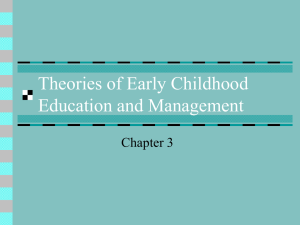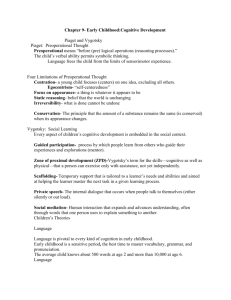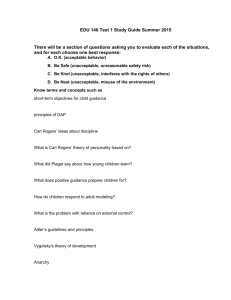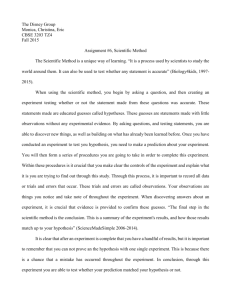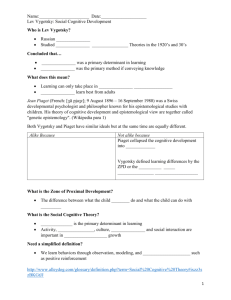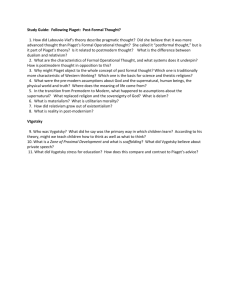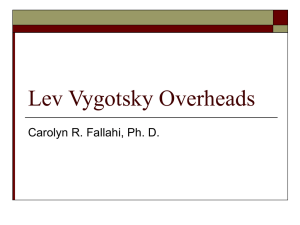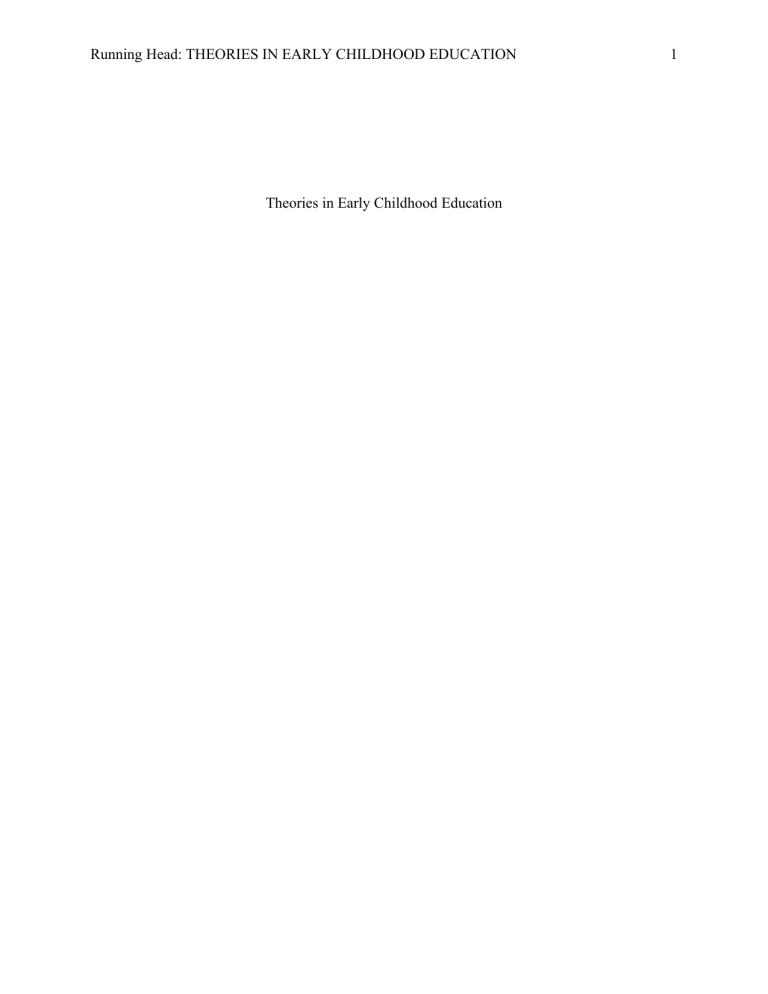
Running Head: THEORIES IN EARLY CHILDHOOD EDUCATION Theories in Early Childhood Education 1 THEORIES IN EARLY CHILDHOOD EDUCATION 2 Step 2 I agree with Lev Vygotsky's Sociocultural Theory, which highlights that people learn through social interaction. The cognitive theory differs from Piaget who supposed that children go through various stages of cognitive development. Vygotsky further implies that the environment influences learning, since parents, teachers, caregivers, culture and the society may affect how they learn (McLeod, 2014). Interaction and social learning play crucial roles in childhood development in Vygotsky's theory. I do not agree with Jean Piaget stages even as the theory is one of the most known theories in psychology. Piaget argued that there are stages of intellectual development from the sensorimotor to the formal operational period (McLeod, 2018). Children development is not fixed in the proposed stages and Piaget may have underestimated how children developed in some stages. Vygotsky pointed out that there continued learning among children and Piaget focuses on the stages. Step 4 To ensure that there are developmentally appropriate practices (DAP) there is a need for the teachers to know the children well to enhance developmental and leaning. Children ought to be part of a classroom community and a teacher’s knowledge on child development enhances the experiences of children learning. Identifying the developmentally appropriate goals and whether the goals are achievable helps to improve the learning experiences. Assessment of the children development facilitates learning and this is especially when the teachers create a community of learners where there is care and active participation (Copple & Bredekamp, 2009). Taking into consideration a child’s needs, special interests capacities and social influences is necessary to implement developmentally appropriate practice where the teachers integrated knowledge. THEORIES IN EARLY CHILDHOOD EDUCATION 3 Besides the teacher being intentional in helping the children achieve their goals where research on children development and learning helps to meet their learning needs in a culturally important and individually appropriate environment. THEORIES IN EARLY CHILDHOOD EDUCATION References Copple, C., & Bredekamp, S. (2009). Developmentally appropriate practice in early childhood programs serving children from birth through age 8. McLeod, S. (2014). Lev vygotsky. Simply psychology, 1-13. McLeod, S. (2018). Jean Piaget's theory of cognitive development. Simply Psychology. 4
